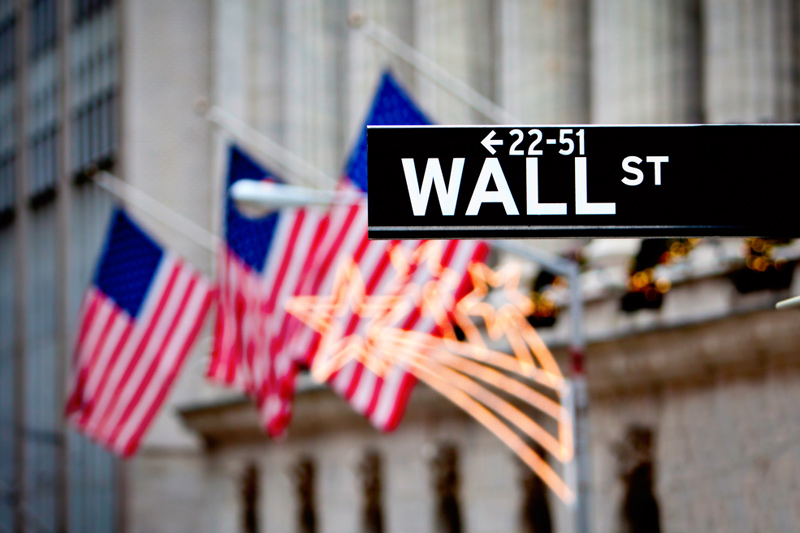Investing.com - U.S. stocks drifted lower in listless trading on Monday as investors bought and sold equities betting on winners and loser from falling oil prices, while fears that an Ebola outbreak in the U.S. was still possible pressuring prices lower as well.
At the close of U.S. trading, the Dow 30 rose 0.07%, the S&P 500 index fell 0.15%, while the NASDAQ Composite index rose 0.05%.
The CBOE Volatility Index index, which measures the outlook for market volatility, was down 0.43% at 16.04.
Oil prices dropped though they came off earlier lows after Goldman Sachs Group Inc (NYSE:GS) cut its oil price forecast for WTI in the first quarter of next year by $15 to $75 a barrel.
The bank expects Brent prices to average $85 a barrel in the first three months of 2015, down from a previous estimate of $100.
Goldman analysts expect WTI to fall as low as $70 a barrel and Brent to $80 in the second quarter of 2015, when it expects oversupply to be most pronounced.
OPEC countries have hinted recently they may leave output quotes unchanged and have stressed the need to adapt to lower prices.
OPEC will hold its next meeting on Nov. 27, but investors bought and sold stocks ahead of time on concerns energy companies may see less revenue while others may see energy costs fall.
Soft numbers out of the housing sector watered down U.S. equities.
The National Association of Realtors reported earlier its pending home sales index rose by 0.3% last month, disappointing expectations for a 0.5% gain. Pending home sales in August fell by 1%.
Year-on-year, pending home sales rose 1.0% in September, missing expectations for a 2.2% reading following a 4.1% decline in August.
Moderating price growth and sustained inventory levels are keeping conditions favorable for buyers.
“Housing supply for existing homes was up in September 6% from a year ago, which is preventing prices from rising at the accelerated clip seen earlier this year,” said Lawrence Yun, the association's chief economist.
The numbers clouded expectations as to when the Federal Reserve may hike benchmark interest rates.
While the U.S. central bank is seen closing its monthly bond-buying stimulus program likely at a policy meeting ending Wednesday, spotty U.S. data have made it unclear when rate hikes might begin in 2015, leaving stock investors unsure as to the pace of U.S. recovery.
On Friday, the Census Bureau reported that U.S. new home sales rose 0.2% in September to 467,000 units, missing expectations for an increase to 470,000 units.
The August figure was downwardly revised to a 15.3% climb to 466,000 units from a previously estimated 18.0% jump to 504,000 units.
Ebola fears kept investors on the sidelines as well.
The state of New Jersey forced a quarantine on a nurse working with Doctors Without Borders who recently returned to the U.S., and while she was later released, concerns of civil rights issues surrounding the case unnerved a handful of investors.
Also, a five-year-old boy in New York City recently in from the West African nation of Guinea was reportedly undergoing testing for the deadly virus.
Leading Dow Jones Industrial Average performers included Verizon Communications Inc (NYSE:VZ), up 1.33%, The Travelers Companies Inc (NYSE:TRV), up 1.17%, and Procter & Gamble Company (NYSE:PG), up 0.93%.
The Dow Jones Industrial Average's worst performers included Merck & Company Inc (NYSE:MRK), down 2.01%, Dupont Fabros Technology Inc (NYSE:DFT), down 1.62%, and Caterpillar Inc (NYSE:CAT), down 0.91%.
European indices, meanwhile, ended the day lower.
After the close of European trade, the DJ Euro Stoxx 50 fell 1.02%, France's CAC 40 fell 0.78%, while Germany's DAX fell 0.95%. Meanwhile, in the U.K. the FTSE 100 fell 0.40%.
On Tuesday, the U.S. is to release data on durable goods orders and a report by the Conference Board on consumer confidence.
Stocks will also move on earnings this week.
